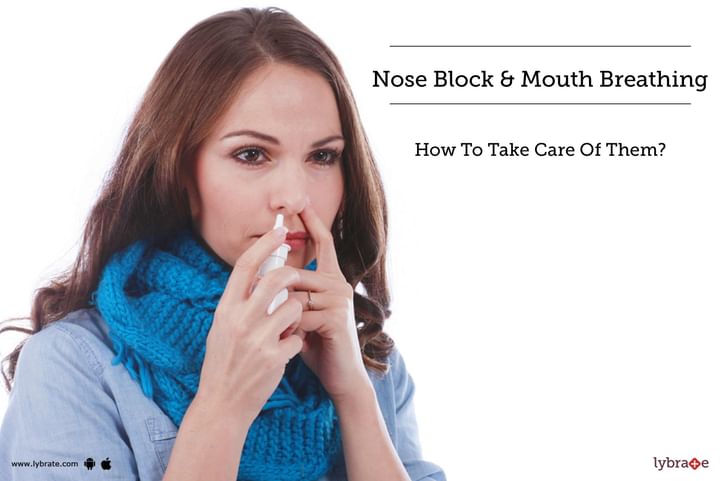Nose Block & Mouth Breathing - How To Take Care Of Them?
Mouth breathing isn’t a problem in itself. Both, the mouth and the nose are healthy airways to the lungs. However, when someone has to breathe from their mouth due to a nose block, it is not only uncomfortable but also unhealthy. Adults can easily notice when they have blocked nasal cavities but children need special attention.
Ill Effects of Blocked Nose
Having a blocked nose does not only end in the irritating mouth breathing but also in long term complications like:
-
Facial deformities
-
Halitosis
-
Gum and dental health issues like gingivitis and cavities
-
Frequent infections
-
Throat and ear infections
-
Allergic reactions
The nose produces nitric oxide that facilitates oxygen distribution throughout the body, especially to the lungs. When a child depends on mouth breathing, the lack of oxygen fatigues them. The child also becomes susceptible to infections because nitric oxide is antiviral, antifungal, and antibacterial.
The mucus and hair follicles in the nose prevent dust and pollen from entering the airways. Mouth breathing results in particle retention in the lungs and dryness of the bronchial tubes.
Prolonged mouth breathing is indeed not healthy. So, we need to spot it and treat it.
How to Spot Mouth Breathing in Children?
You can conclude that your child is suffering from a blocked nose if you notice the following symptoms:
-
Chapped lips
-
Halitosis
-
Fatigue and daytime sleepiness
-
Dark circles
-
Irritability throughout the day and especially during bedtime
Causes of Nose Block and Mouth Breathing in Children
Considering all the ill-effects and the difficult symptoms, nobody would choose to breathe from their mouth. So, what causes mouth breathing or blocked nose even when the child does not have a cold?
-
Sinus infection
-
Enlarged tonsils
-
Enlarged adenoids
-
Nasal polyps
-
Soft palate deformity
-
Jaw and nose deformity
-
Chronic stress
Diagnosis
Although one can clearly see the symptoms, only a licensed practitioner can give a conclusive diagnosis. A general physician, ENT specialist, or a dentist can diagnose mouth breathing. They may ask questions about the symptoms.
Treatment
Treatment for mouth breathing will be done according to the diagnosed cause.
-
Antihistamines and nasal decongestants are the common methods of treatment because nasal blockage generally occurs due to cold or allergies.
-
In the case of obstructive sleep apnea, a CPAP mask needs to be worn at bedtime.
-
In the case of tonsils or adenoids, surgical removal is the answer.
-
In the case of dental deformities, braces and other dental structures are helpful.
-
Myofunctional therapy in addition to the required medication.
Once an ENT specialist has discovered the cause, treatment of blocked nose or mouth breathing is easy. Nevertheless, prevention is even better so look out for risk factors such as tonsils, asthma, and other causes. Also, keep your air free of allergens with HVAC air purifiers. It is always advisable to follow all the preventing instruction prescribed by the doctor for better results. Also, if one notices any of the symptoms, it is recommended to consult doctors as soon as possible.



+1.svg)
